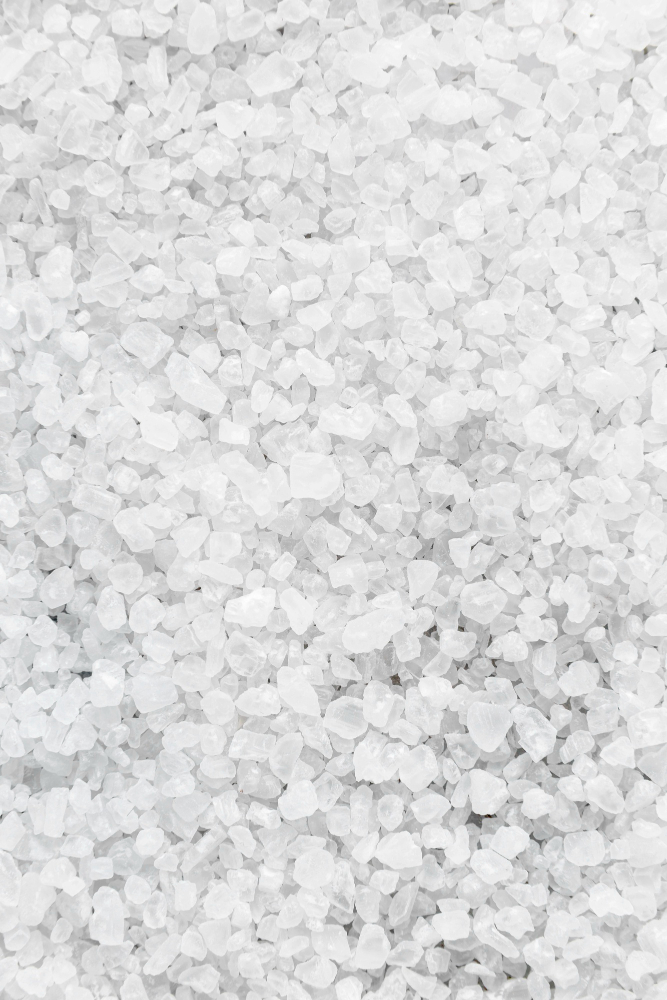Sea salt, as the name suggests, is salt extracted from seawater.
It is a common seasoning in the kitchen and is often considered a more natural alternative to regular table salt. Here are some aspects of sea salt and health:
- Mineral variation: Sea salt contains various minerals and trace elements that occur naturally in seawater. The exact composition may vary depending on the source and method of production. These minerals and trace elements may contribute somewhat to your daily needs, but generally they are present in small amounts.
- Sodium content: The main ingredient in sea salt is still sodium chloride, just as in ordinary table salt. It contains sodium and therefore should be consumed in moderation. Excessive salt intake can lead to high blood pressure, which increases the risk of cardiovascular disease.
- Taste and texture: Sea salt often has a milder taste and texture than regular table salt. Some people prefer the taste and mouthfeel of sea salt and use it to flavor dishes.
- Use in cooking: Sea salt is often used in cooking and baking, but it is also served on the table to add to dishes. It can be used in seasoning meat, fish, vegetables and even desserts.
- Purity: The purity of sea salt can vary depending on the source and production process. Some sea salts are considered relatively pure, while others may contain impurities. It is important to choose products from reliable sources to ensure that you are using high-quality and safe salt.
Overall, sea salt can be a tasty addition to your kitchen, but it should still be used in moderation because of its sodium content. To maintain a healthy salt intake, it is wise to moderate your salt consumption and follow a balanced diet.
